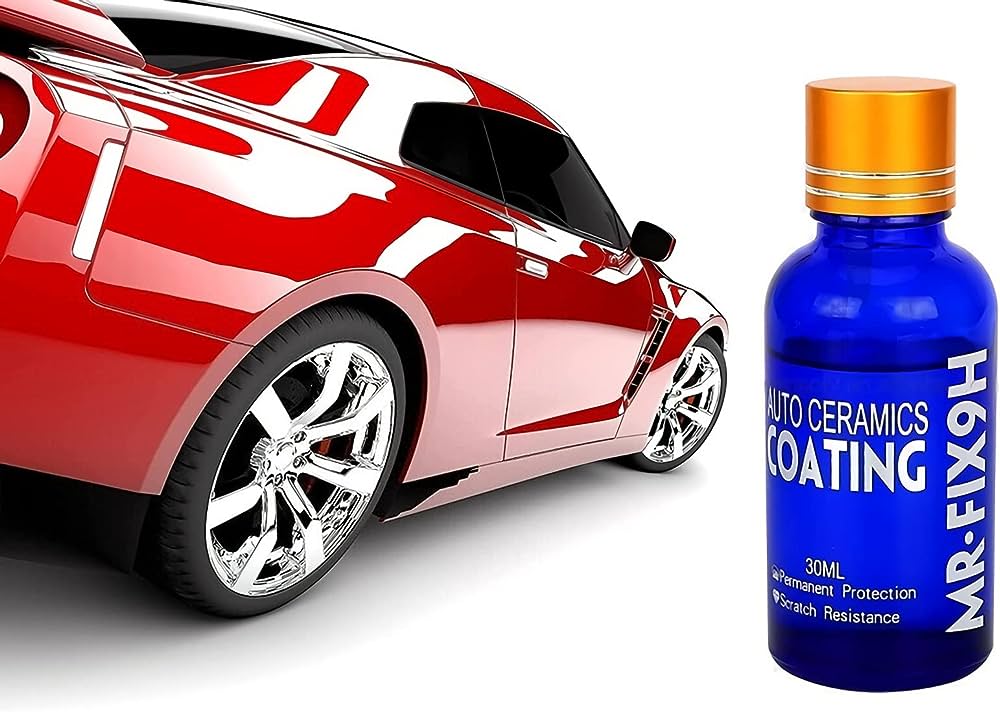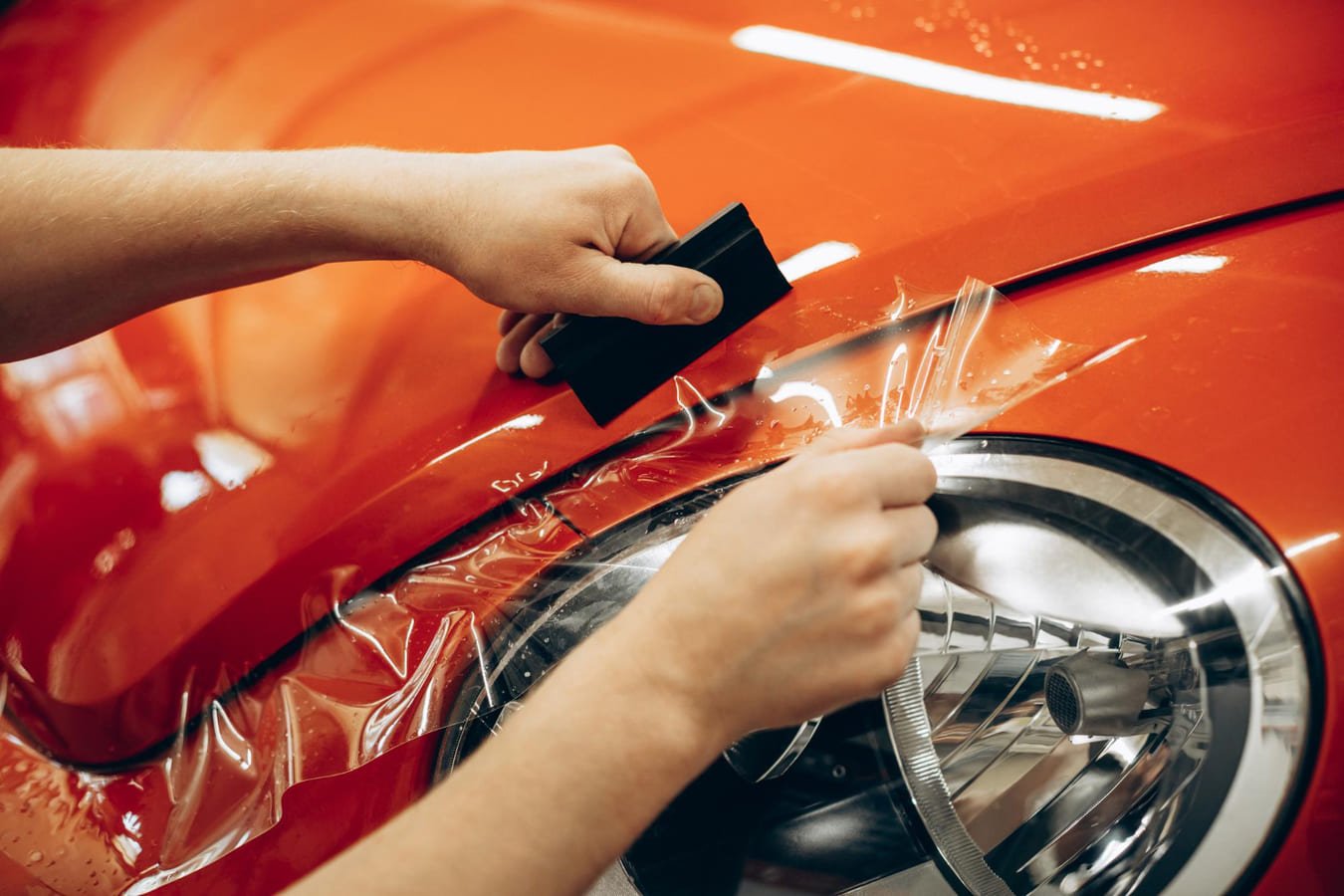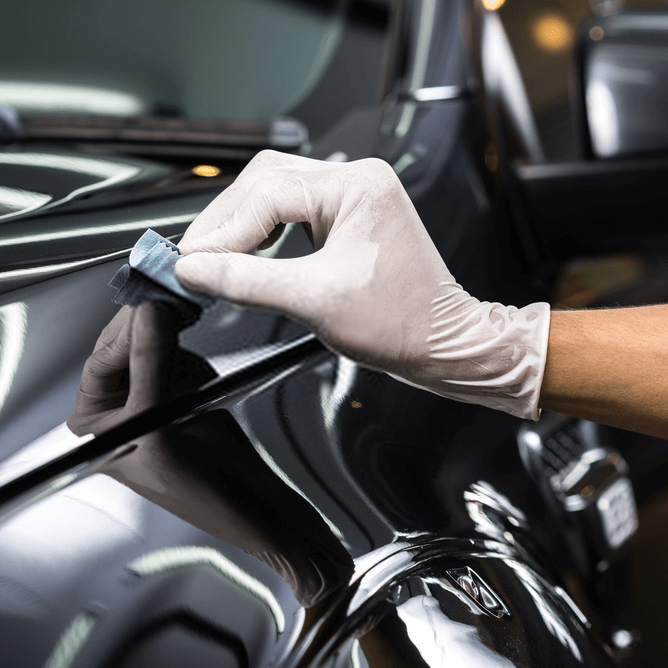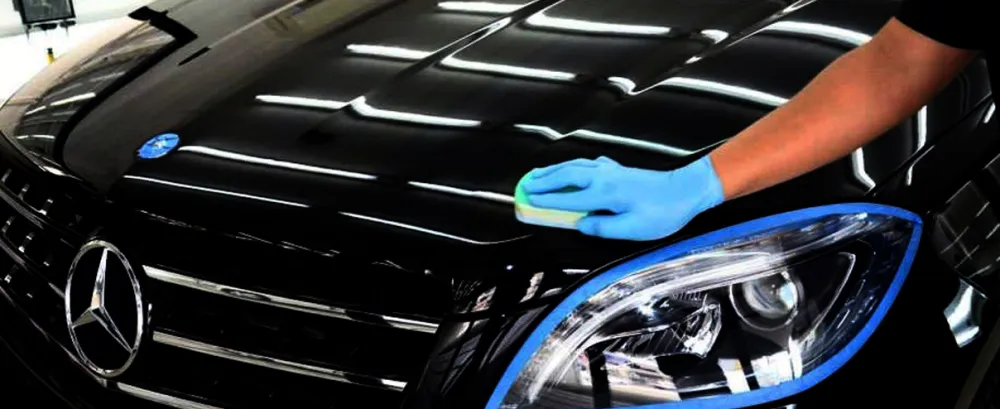PPF (Paint Protection Film) vs Ceramic Coating: Which is more effective?
Paint protection has come a long way. Gone are the days of wax polishing to keep your car shiny at all times. Currently, two of the most popular methods of keeping your car shiny are to apply a paint protection film (PPF) or ceramic coating. Keep in mind that both methods have advantages and disadvantages concerning cost, effectiveness, maintenance, and durability. But don't worry; We'll clarify things in this article by explaining these car paint protectors to help you choose the right one.
What is a paint protection film?
A paint protection film (PPF) is a protective layer that can be applied to car’s paint. It is a transparent, ultra-thin film made of thermoplastic urethane (TPU), a flexible, durable and self-healing material. It protects the paint from damage caused by debris , bugs, stones, and other environmental hazards.
PPF is transparent and virtually invisible, so it does not impact the appearance of the car. It is also UV rays and easy to clean and maintain. PPF can be removed without damaging the paint job.

What is a ceramic coating?
Ceramic coating is a protective layer that can be applied to car’s paint. It is a liquid polymer that is sprayed onto the paint job and then cured to form a hard, durable, transparent layer. It protects against minor scratches, swirl marks, water-marks and environmental hazards.
The ceramic cost is hydrophobic, which means that it repels water, dirt and other substances that can harm the car's paintwork, making it easier to clean and maintaining its shiny appearance. It is also resistant to ultraviolet (UV) rays, forming a protective layer between the paint and the environment.

Paint Protection Film: Pros and cons
Below are the advantages and disadvantages of PPF on a car’s paint.
Merits
• It is invisible, retaining the original paint job.
• Has hydrophobic properties to deter water and liquids.
• Easy to remove
• Glossy finish
Demerits
• Slightly more expensive compared to other paint protectors.
• Some films may become yellowish over time.
• Prone to damage
• Poor installation can make it expensive to re-apply
Also Read: Car care tips to keep your vehicle in great shape

Ceramic coating: Pros and Cons
Here are the merits and demerits of Ceramic Coating on a car’s paint.
Merits
• Offers good protection to the car’s surface.
• Lasts longer than regular paint
• Can withstand heavy shocks and vibrations
• Easier to clean
• Better than traditional wax polish
• Offers a high gloss finish
Demerits
• Expensive compared to some conventional paint protectors
• The application process takes a long time.
• If not applied correctly, it might look bad
Similarities between PPF and ceramic coating
This is how PPF and ceramic coating are similar in their features.
• Invisible finish
• Prevents fading and oxidation of car paint.
• Increased chemical resistance
• Protects the paint from UV rays.
• Protects paint from acidic contaminants.
• Adds value to the vehicle
Difference between PPF and Ceramic Coating
Despite having some similarities, the Ceramic Coating and PPF have differences too. Here are the details.
|
Paint Protection Film (PPF) |
Ceramic Coating |
|
Thicker than Ceramic Coating |
Thinner than PPF |
|
Has self-healing properties |
Does not boast of self-healing properties |
|
Does not have superior hydrophobic properties |
Boasts of superior hydrophobic properties |
|
Absorbs minor scratches |
Easier to clean |
|
Prevents swirl marks |
Increased shine |
|
Protection against block chips |
Lower maintenance |

PPF vs Ceramic Coating: Protection level
Here is the comparison of PPF and ceramic coating based on the level of protection they offer.
• Impact resistance: PPF is thicker than ceramic coating and offers a higher level of protection against minor scratches. It also has self-healing properties, keeping the paint in its original state.
• Hydrophobicity: Ceramic Coating has an advantage over PPF in terms of hydrophobic properties, making it easier to clean the car.
• UV Protection: Some lower quality PPF materials may yellow, fade or discolor when exposed to sunlight. However, the ceramic coating protects the car's paint from fading due to oxidation.
PPF vs Ceramic Coating: Durability
Below is a comparison between the durability of PPF coating and ceramic coating.
-
Premium PPF lasts 7-10 years, depending on product quality, professionally applied and regularly maintained.
-
Ceramic coating lasts approximately 2 to 5 years, depending on the quality of the product. However, some of the newer, more advanced ceramic coatings offer longer durability of up to 5 years.
PPF has an advantage over ceramic coatings in terms of durability. Consider using a ceramic coating first and then applying PPF for best results.
PPF vs Ceramic Coating: Cost
When comparing PPF and ceramic coatings regarding the cost factor, PPF is more expensive than ceramic coatings. This is due to its superior protection against minor scratches compared to ceramic coatings.
PPF vs Ceramic Coating: Which is Better?
Both ceramic coating and PPF provide a higher level of protection and shine to the car's paint. However, there are some factors that set them apart from each other.
-
If you prefer a deeper shine to your car's paint, ceramic coating provides a higher gloss than PPF coating. It also has an advantage over PPF in terms of ease of cleaning the car.
-
PPF enables hassle-free ownership as it provides more protection against minor scratches. However, PPF is expensive compared to ceramic coatings.
-
You also have the option of using both paint protection products for optimal protection. You apply the PPF and then a ceramic Coating over it for higher levels of protection.
Also Read: Mahindra XUV400, XUV300 and other SUVs get discount up to ₹3.05 lakhs this festive season: Details